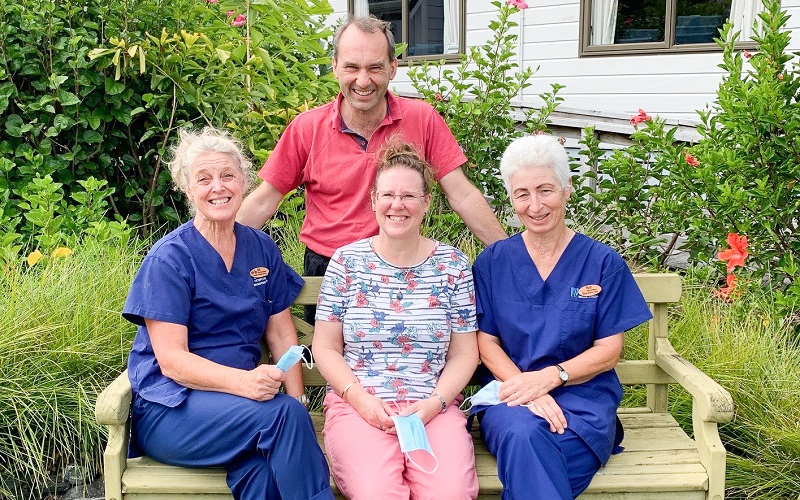Practices
Innovative use of POADMS funding improves services for cardiac patients
Russell Medical Centre is using Primary Options Acute Demand Management Service (POADMS) funding to offer an innovative service that provides reassurance for patients, reduces pressure on hospital cardiology services, and avoids lengthy waits for cardiac investigations.
POADMS funds primary care to provide safe, acute and non‑acute care in the community that reduces use of hospital services.
It’s a high trust model supporting innovative care that meets patients’ needs close to home.
Dr Chris Calcott of Russell Medical Centre came up with an innovative proposal to utilise Kardia monitors using POADMS funding.
Kardia monitors are a mobile ECG (electrocardiogram) device that pairs with a patient’s mobile phone, which the patient can use to record a heart rhythm tracing each time they feel they are having an episode of palpitation or a “funny turn”.
Chris can then review the patient along with the recordings on their phone and decide if any further tests or referrals are needed.
“As a GP, I can have a working diagnosis 7-14 days from my patient presenting,” he says. “I can catch patients with paroxysmal AF and start anticoagulation. I can reassure my worried well nothing serious is going on. If I do suspect serious pathology, I can still get an urgent appointment with the cardiologist as my investigations have already provided the necessary evidence. Working like this gives me huge professional satisfaction as a GP.”
Without the Kardia monitor service, patients can face a considerable wait to see a cardiologist and an even longer wait for a Holter monitor (a portable ECG worn for approximately 24 hours).
In contrast, patients only need to see Chris for the initial consult, the practice nurse to set them up with the Kardia system, and then Chris once more for a review. POADMS covers the cost to the patient of any care which extends beyond the first consult with Chris, including the extra time Chris spends reviewing the traces.
For patients in financial hardship, using a Kardia monitor reduces cost barriers to accessing care.
“My Quintile 4 and 5 and Māori patients spend money to travel to see me, even more to travel to see the cardiologist, and if a Holter is fitted they have further costs getting to the fitting and posting the monitor back. At the end of all that, you may still not have a diagnosis if it does not happen when you have the Holter on.”
With the Kardia monitor service, however, Chris can see all the events the patient has experienced since they last saw him – all at the patient’s local GP clinic.
Dr Libby Prenton, who provides clinical leadership for the POADMS programme, says Russell Medical’s Kardia service is a great example of a GP using their clinical skills and experience in a patient-centred way that meets the needs of their practice population.
“We love that Chris approached us with his idea to use POADMS funding in this way: it was a perfect fit with our extended consult funding which we can use flexibly to support care that prevents use of hospital services.”
“We recognise GPs are experts in patient management, and where this is clearly used to avoid the need for a patient to be admitted or require a specialist appointment, we are very happy to support that.”
Libby and the POADMS team encourage clinicians to use the POADMS programme to its full extent and to approach them with ideas of patient-centred services that meet the aims of the programme.
“We are very happy to receive enquiries about interventions if clinicians are unsure if they would qualify for funding.”
For more information about eligibility for POADMS funding and the range of services funded, visit Northland Health Pathways POADMS page Primary Options Acute Demand Service (POADMS) – Community HealthPathways Northland.
